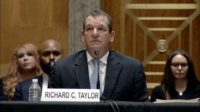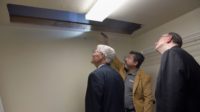A journeyman laborer who worked on Microsoft’s major Redmond, Wash., campus modernization project is suing the tech company as well as contractors Skanska and Balfour Beatty Construction over alleged racial discrimination he says took place on the job.
Quinte Harris was hired to work on the project through a Skanska-Balfour Beatty joint venture starting in the spring of 2021, according to a complaint filed April 25 in Western Washington U.S. District Court. Within a month of joining the job, Harris, who is African-American, “became aware of racial hostility from certain white construction operatives.”
The first incident involved another worker who, without invitation, approached Harris and said that he did not like the Black Lives Matter movement, or Black people in general, especially if they were from the South, the complaint states. The worker added that he was not the only white man on the job who felt that way, and that Harris or any other African-American worker who complained about racism would find their employment in jeopardy.
Harris was “horrified and angered,” and also puzzled because he had not been discussing Black Lives Matter or anything related to racial politics. The “confrontation was based solely on Mr. Harris’s skin color and was intended solely to make Mr. Harris feel threatened, off-kilter, and unwelcomed,” his complaint states.
The court issued summonses to the three companies June 22 ordering them to respond within 21 days. A spokesperson for the Skanska-Balfour Beatty joint venture said in a statement that it is aware of the lawsuit, but it does “not believe there is any factual basis for the claims.”
The joint venture “intends to vigorously defend itself and its people against the unsubstantiated allegations," the spokesman added. [Skanska-Balfour Beatty] does not tolerate the kind of behavior described in the complaint and is committed to providing a safe, inclusive and discrimination-free workplace.”
The suit further alleges that Harris was subject to more discrimination and retaliation after he reported the first incident, and others. The complaint describes Harris finding a handmade sign stating “this is not a safe space” on his work cart after a “safe from hate” training session, and Harris repeatedly having his tools stolen. The workers Harris reported faced no consequences, despite reassurances from human resources personnel that they would protect him.
After Harris spoke with a local TV reporter for a story about the situation last October, it got even worse. According to the complaint, a supervisor told Harris he was no longer in the running for a promotion to foreman, his schedule was changed without warning and he was reassigned to work weekends. In November 2021, the complaint states Harris was assaulted by an ironworker who had falsely accused an apprentice of theft after Harris tried to peacefully step in.
“I would very much like this situation to be a learning tool so that it stops,” Harris told KIRO last fall. “Because the culture that made this OK is still here.”
In January, Harris was fired from the job. His lawsuit accuses the three companies of employment discrimination because of race, unlawful retaliation, wrongful termination and negligent supervision. It states that it damaged his career by throwing off his professional trajectory, and his well being as he was left with “symptoms consistent with post-traumatic stress disorder.”
Summarizing the impact on Harris, the complaint continues, stating: “He left the Microsoft Redmond campus a changed man; he was hollowed out by the pervasive racism he experienced, traumatized by the overt threats to his wellbeing and the constant gaslighting the defendants subjected him to, and he was mentally and physically wasted by the avalanche of racial harassment and discrimination that buried him."
A Microsoft spokesperson said the company is working with the contractors “to understand what happened.”
“Workplace discrimination and harassment are unacceptable,” the Microsoft spokesperson said in a statement.
Meanwhile, work continues on Microsoft’s 72-acre campus modernization. The project includes demolition of 12 buildings, construction of 18 buildings totaling 2.5 million sq ft and renovation of another 6.7 million sq ft, plus construction of a 2-acre plaza. Microsoft expects to begin taking occupancy of the new buildings late this year or in early 2023.






Post a comment to this article
Report Abusive Comment